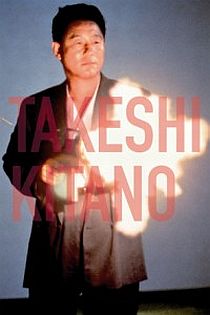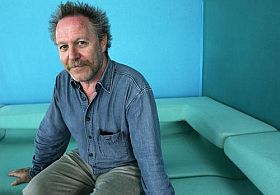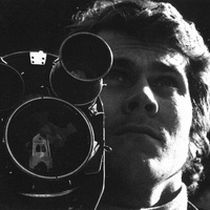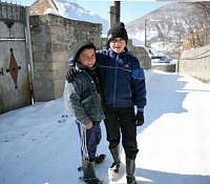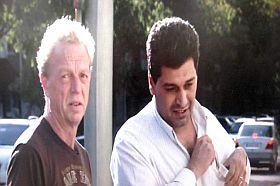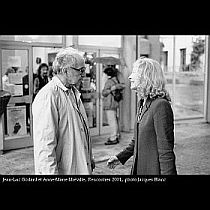The Canadian documentary film magazine POV asked me to write an article on festivals. I did so, it has been published in connection with the HotDocs festival that is running right now. You can read the article below and for further info on this excellent magazine visit the
http://www.povmagazine.com
or
http://www.docorg.ca/en/point-view-magazine
There are some festivals that I have come back to year after year, with pleasure, almost with a feeling of being part of the furniture. I place myself on the same row in the cinema and make my own screening schedule that fits with lunch and dinner breaks and meetings with friends. Then there are festivals where I have been to only a few times–or go reluctantly.
It is not easy to write about festivals as an insider who goes there
because you are part of ”it,” which in my case is the international documentary community. It’s my job. Am I able to evaluate from the point of view of an ”ordinary” festival goer, who studied the catalogue and chose a screening from personal interest or from words of mouth?
No, I can’t, but I will do my best to tell you about how I experience festivals by going back in my memory – to give the reader a hint on my angle, and openly tell you where I am totally biased in my comments. I will try with personal anecdotes and enthusiastic remarks, mixed with critical and bitter words on bad behaviour!
The First Time
But first some nostalgia: The First Time…
I have to tell you about a young Danish film critic named Tue and his friend, who went to their first film festival in the early 1970s to write reports for a local communist newspaper, which was the only one who wanted festival reports! We went to the London Film Festival, got VIP accreditation, access to press screenings and to the VIP room of the National Theatre on the South Bank. That’s where the two youngsters found themselves sitting next to Jane Fonda, who was there with her husband, fellow Vietnam activist Tom Hayden and the film Tout va Bien by Godard.
It could have been the chance to get an exclusive interview but we were absolutely paralysed by our closeness to a superstar. No words came out of our mouths, except for polite answers to her question about who we were. We just wrote about what we saw on the cinema screen in long uncensored (and unpaid, if I remember correctly!) articles.
We did not limit ourselves to writing about documentaries; it was everything – and the same pattern repeated itself later at the Berlinale, where I was chasing films in the great programme of Forum des Jungen Films under the leadership of Ulrich Gregor. Jacques Rivette’s Out:One Spectre, Werner Herzog’s Auch Zwerge haben klein angefangen and La Maman et la Putain by Jean Eustache were films I saw there and will never forget.
On the job in Paris
In 1975, I got a job in the National Film Board of Denmark, where I stayed for 20 years. The focus became professional, and I was sent to find films for our non-theatrical catalogue at Cinéma du Réel, which is a festival I continue to enjoy. pleasantly situated as it is in Paris, in the Centre Pompidou. The festival used to have the subtitle “ festival for ethnographic and anthropological films,” and for years the legendary documentary filmmaker Jean Rouch always sat in the first row. It is still an important festival with films from all over the world, keeping to the high standard that was developed under the leadership of Suzette Glénadel, who chose films that dealt with important subjects treated creatively by artistically strong film directors.
This year the festival programme was curated by Javier Packer-Comyn, who offered a retrospective of films by Albert Maysles and a series of films made by “tandems” like Godard & Anne-Marie Miéville. The festival has an international and a regional competition and for the first time this year, a competition for first time films. What I like about Cinema du Réel is its non-commercial, somewhat classic programming. In a pitching-free zone!
Industry Events
They’re an oasis for someone like me, who after 20 years at the Film Board took part in the building-up of the EDN (European Documentary Network), which since1996 has developed and organised workshops and pitching forums for documentary projects. These forums, where producers meet broadcasters and other funders, have found their natural place as part of, and running parallel to well-known festivals like Idfa in Amsterdam and Hot Docs in Toronto. Both festivals and the third big player, DOK Leipzig, have the ambition to attract both a big local audience and have industry activities attached: pitching sessions (in Leipzig done by the training programme Documentary Campus), debates, case studies, “meet the director” and so on.
A visitor like me who goes to these events for professional reasons, to tutor the people who are to pitch, or to moderate sessions – does not get to watch many films. A matter of time simply. But what a pleasure it is to see the long queues in front of the cinemas in Leipzig, Amsterdam and Toronto. Documentary festivals attract a young audience that looks at the festivals as cultural events.
An Ordinary Audience
This is maybe the most important statement you can come up with: Festivals are no longer for the professionals and the cinéphiles.
Festivals like IDFA and Hot Docs and DokLeipzig attract a vast general audience—and that’s remarkable, Yes, of course, they are all meant to be open to everyone but it was not always like that. I remember waiting to get in to Cinéma du Réel screenings together with prominent directors like Joris Ivens and Rouch, who knew everyone passing by. The élitiste image of documentary festivals has gone. I can see the change over the last five or six years as some excellent documentary festivals have come out of the blue.
The Young Ones
In the South of Europe DOCLisboa is one of the festivals that I have enjoyed visiting and not only because the selection done by Serge Tréfaut, a filmmaker himself, is very competent, mixing the classic (big retrospectives of Wiseman and Jonas Mekas) with the new (international and Portuguese competition programme). At the 2009 edition Tréfaut launched a serious attack on the Portuguese television for its lack of interest in and support to the creative documentary. The festival had grown in importance and can now challenge local film politics. The media responded and the festival succeeded in raising a debate.
What the production company Parallel 40 in Barcelona has done during the last decade is extraordinary. I am a senior advisor for DOCSBarcelona but even so I dare say that Joan Gonzalez and his team has created a documentary culture in Catalunya. The DOCSBarcelona pitching forum took off 13 years ago, and now the public festival, which began four years ago, is really taking off. It is still a small festival but with an exclusive selection of around 40 films and a strong programming focus, it is building up a young audience interested in seeing documentaries. Their educational aspect is present in the “Documental del Mes”, the monthly documentary that is being screened in around 40 places in Spain. Parallel 40 now also organises Mémorimage in Reus (Catalunya), a festival for films that deal with memories—and the company produces short documentaries for local TV3. Quite an achievement!
A Documentary Culture
What is the role of a festival for documentaries? To promote the genre, to show the best of the best, to push local film politics, to create a public opinion about the importance of documentaries in a modern democracy?
When I started at the National Film Board in 1975, one of my jobs was to make the national press interested in writing about documentaries. It was almost impossible. The editors asked me – “where can our readers watch the films,” and I said libraries, art and culture houses, schools, on television…”
Not enough reason for a review, they said! Today it has changed completely when it comes to the press. Documentaries are reviewed as they’re screened more and more in the cinemas – and at festivals, where the cph:dox (cph for Copenhagen) in a few years has established itself as a strong promoter of the genre. It has developed a big audience and a programming profile that goes beyond the classical documentary, with a clear approach to visual art and what the French call “docufiction.” Cph:dox is a strong film political weapon for the Danish Film Institute when it comes to stressing the importance of documentary as an art form. And it’s thus part of a documentary culture.
Similar initiatives have been created in Finland (Docpoint), Poland (Planet Doc Review) and Jihlava (Czech Republic). The festivals are covered in the press and the creative documentary genre is promoted. These young festivals have an advantage over the traditional Idfa, Hot Docs and DOKLeipzig since they can build up their own profile on passion and deliver nice surprises to their audience.
The Big Festivals
The same humbleness is not always to be found around the bigger festivals like the ones in Cannes, Venice, Berlin, Karlovy Vary and Edinburgh, all of which now include documentaries in their programming.
Which brings me to the bitter remarks… about all these exclusivity restrictions in connection with festivals. Is it really for the good of the documentary that a film taken for the Berlinale can not be shown in other festivals before? Will the Berlin audience be less interested in watching a good documentary if it has been shown elsewhere?
All festivals –even Idfa, Hot Docs and DOKLeipzig – have restrictions; some might be reasonable, especially about having national premieres, but still I must insist on asking the naïve question, “is it always good?” Is it really so important to write World Premiere or International Premiere next to the title? The filmmakers I know shake their heads, the sales agents feel that they are forced to play the game, and the audience at the smaller festivals have to wait until next year to see the films that they can read about on websites, watch clips from on YouTube and in the press!
The Absurdity
A festival very close to my heart, Magnificent7 in Belgrade, Serbia, which is completely non-competitive and includes only seven films, wasn’t allowed to show two documentaries one Danish (“Into Eternity” by Michael Madsen) and the other French (“Nénette” by Nicolas Philibert), because of the Berlinale! The films would have been shown once, in the presence of the director or a key member of the creative team. And yet—absurdly—the opportunity was denied.
A Good Festival
A good festival is one that celebrates the documentary cinema as an art form with respect for the authors – and the audience that should always have the best of the best, regardless of commercial reasons. A good festival has a clear profile thematically and invites the filmmaker to meet the audience, with good amount time given for Q&As. A good festival has selectors, some call it curators, who put the filmmakers in the foreground and not themselves! A good festival is one that does not play according to journalistic or TV-rating rules – we don’t want the newest and the most hip and as many spectators as possible!
It also promotes the difficult films and is not afraid of digging up gold from film history. Many festivals should remember that less is more. Volume is not necessarily what the audience expects. Focus on quality, daring programming, time for the meetings between audience, film and filmmaker. Clear profile, please.
Photo: Nicholas Philibert, was not allowed to go to Magnificent7 2010



